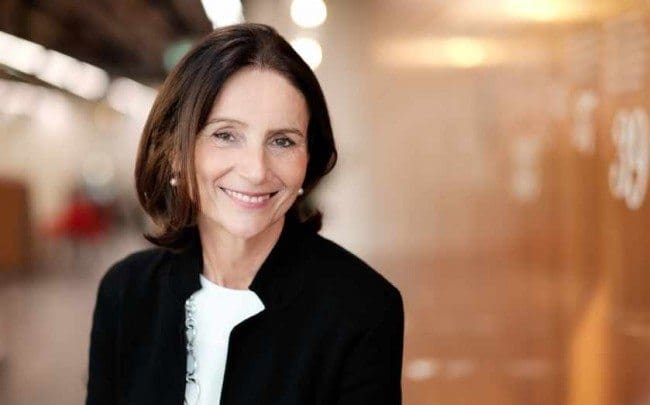The new head of the CBI is seeking a truce with government by dropping claims that the £9 national living wage will cost jobs, reports The Times.
In her first interview since taking over as director-general last week, Carolyn Fairbairn said that wages were already rising in some sectors and that it was too early to tell whether there would be job losses. “We don’t really know, I don’t really know.
“It’s not just the level of the national living wage, it’s the differential, how it will knock on to the rest of the economy. We will see how it plays out. If we do get productivity improvements and we can get the productivity agenda working, I hope that can be minimised.”
Her comments contrast with those of John Cridland, her predecessor, who stepped down after 33 years and said last month: “I think it’s quite a hard sell to have a national living wage of £9 by 2020 without losing jobs.”
The change of tone is part of a wider reset by Ms Fairbairn, the first woman to run the business lobby organisation.
The former McKinsey consultant and director of strategy at the BBC and ITV made clear that, after a rocky period for the business lobby group over Europe, she intended to instigate change in certain areas to make it “more modern”.
She said: “It’s a fantastic organisation deeply rooted in the economy and in business, but there are areas where it could become a little more contemporary . . . I’ve got thoughts on how we can get more women along. More tech members, more start-up members. Getting some energy around an organisation that feels a bit more modern.”
On the EU, the CBI has been criticised for backing continuing membership by the Vote Leave campaign group as well as by Sajid Javid, the business secretary, who suggested that its stance undermined the renegotiation.
Ms Fairbairn stressed that there were CBI members who wanted to leave the EU, and she acknowledged deep concerns. “We all have to recognise there are frustrations with Europe, particularly around product standards. We are fighting their cause in Europe.”
She also said that she would be happy to speak to Dominic Cummings and Matthew Elliott, from Vote Leave, which organised a protest during the prime minister’s speech at a recent conference.
“I really want to hear what they think the alternatives to Europe look like. What I want to say to them is that our members have every right to speak up, but they want to hear what the alternatives look like, and there isn’t any clarity about that.”
She rejected suggestions of problems with recent surveys of CBI members, as they alleged. She also signalled that the organisation was unlikely to support EU exit. “The overwhelming view is the single market brings access to 500 million consumers across Europe and it is hard won and valuable.”
Ms Fairbairn also revealed her contribution to John Major’s policy unit from 1995 to 1997. She said that while she was at McKinsey she was asked to go as “a non-political person” to work on health and social care policy.
“It was a fascinating time. It was just when the fundholding debate was taking place. It was the last two years of John Major, who was just a wonderful prime minister in a difficult period.
“The issues there were around bringing market practice into the NHS at a very early period. A lot of that you see evolving today.”
She said that she met George Osborne, who was a special adviser. “He was around in No 10 a little. We did get to know each other.” Asked what he was like, she added: “I can’t really remember. He seemed very young . . . I would say we had a cup of tea once or twice — I wouldn’t want to overstate it.”
Ms Fairbairn struck a conciliatory tone towards Labour. “We’ve reached out to [Mr Corbyn]; a meeting is going in the diary. I met Angela Eagle [shadow business secretary] yesterday. We are really keen to engage with them. A strong opposition is a good thing, and there are common agreements.”
The biggest area of contention with government in advance of the spending review on Wednesday is the suggestion that some business grants will be converted into loans. She said she hoped that Mr Javid would not cut key support. “Look at Germany: they spend 3 per cent on research and development, and we spend less than half that.”


